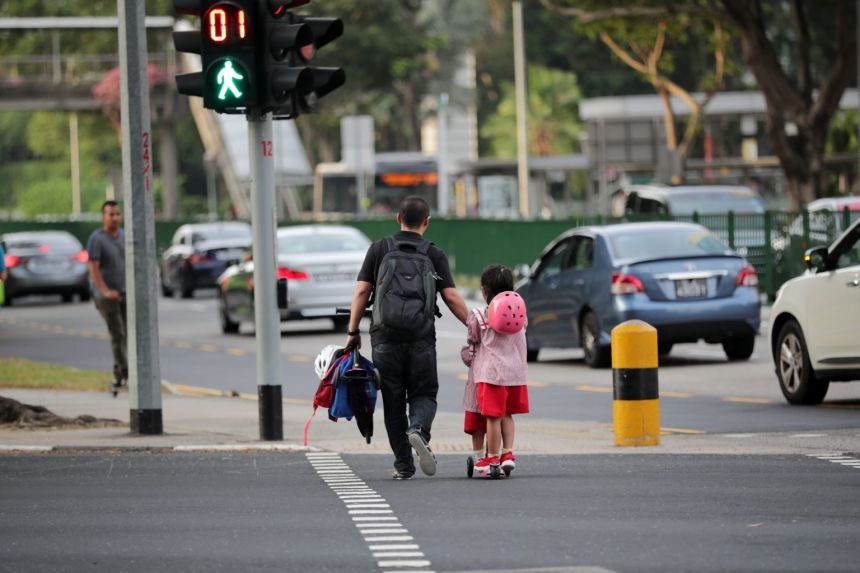Why Singaporean dads aren't taking paternity leave

In 2018, The Ministry of Social and Family Development (MSF) found that six in 10 dads in Singapore did not take their paternity leave that year.
The astonishing figures were in spite of the government's ongoing efforts to get more fathers involved in parenthood. A majority of fathers also did not take any shared leave, according to MSF.
Why is this happening? Experts have found various reasons why dads in Singapore are not taking paternity leave and among these are company culture, societal attitudes on gender roles and self-policing.

MSF says their results were based on records of employers who submitted claims for leave by the employees. Their numbers were also based on the group of eligible fathers — according to their working status — when they applied for Baby Bonus.
The Singapore government-paid paternity leave was introduced in 2013 for married couples who wanted to start a family. In 2017, it was doubled to two weeks. Shared parental leave was also increased to four weeks.
Despite the given weeks for paid leaves, 65 per cent of eligible fathers in Singapore did not take any paternity leave in 2018. Nearly 97 per cent did not take any of the shared four weeks of parental leave as well.
Experts have listed the top reasons that point to why dads are avoiding taking paternity leave.
[[nid:458546]]
Since traditional ideals pin women as the primary caregivers, fathers are seen to have little or no immediate physical responsibilities when it comes to children.
Singapore Management University sociologist Paulin Straughan also says that nowadays, norms have already progressed so not everybody abides by this. But there may still be those who feel caregiving is only a woman's job.
Incidentally, a study conducted in 2020 by the Institute of Policy Studies pointed that cultural stigma and gender norms around parenting should be reduced so that dads get to have more active roles at home. But these recommended changes are yet to be adopted.
Professor Straughan explains, "It may also be about self-policing at the workplace. Some may not want to be absent too often in order to show they are committed and dedicated workers."
A study by the University of Edinburgh also suggests that fathers wanting to take on a more active caregiving role may depend heavily on their workplace culture. Men in America for instance, did not want to take too many paternity leave days for fear of missing out on future possibilities in their career.
[[nid:479375]]
HR expert Erman Tan adds, "It is about whether your bosses and peers are supportive of you… or whether your colleagues make sarcastic remarks after you come back from leave."
It has also been noted that employees in smaller companies may not know of all the benefits of paternity leave. There are also informal arrangements where fathers manage to shoulder family responsibilities without having to take leave.
President of the Association of Small and Medium Enterprises Kurt Wee says mobile technology lets people balance both their work and family responsibilities without having to apply for a leave.
Professor Straughan says it's also possible that dads in Singapore may not be taking their paternity leave simply due to private decisions by married couples.

All fathers should have the chance to support their wives and become a co-parent. Especially seeing the impact an involved father can have during the first years of the child's life.
Take for instance the case of Riana Shah, an MBA graduate from MIT Sloan School of Management and a new mum. She shared her experience with paternity leave on LinkedIn. She stated that paternity leave should be advocated for gender equity.
[[nid:476064]]
She wrote, "If we want gender equity, paternity leave is one of the most important measures we need to advocate for. Ten days of paternity leave is absurd; 30 days is better but it is still not enough. I think 12 weeks of paternity leave is where this conversation needs to start and companies need to mandate that men actually take their leave for a cultural shift. "
Hopefully, stories such as Shah's would encourage more men to opt for paternity leave.
They may arrange on their own for one person to stay at home and look after the child while the other goes to work. This way the entire family is not disadvantaged.
This article was first published in theAsianparent.